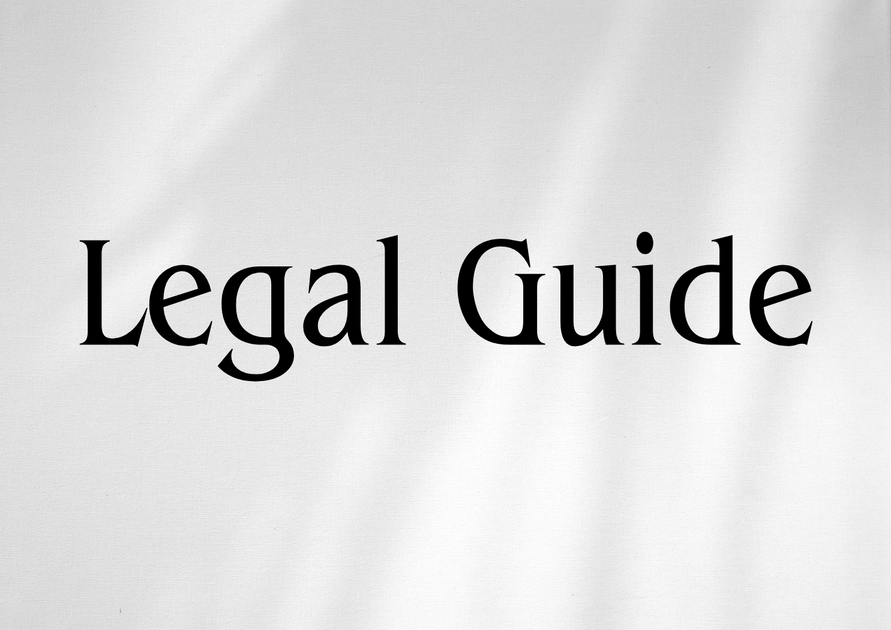Introduction: The Central Role of Tahkeem in Modern UAE Commercial Dispute Resolution
In an era where the United Arab Emirates cements its position as a global business hub, the legal infrastructure for managing commercial disputes has become pivotal. The Sharjah International Commercial Arbitration Centre, widely known as Tahkeem, is at the forefront of supporting this dynamic business environment. As business transactions become more complex in Sharjah, Dubai, and the wider UAE, the need for efficient, confidential, and enforceable dispute resolution has surged. Tahkeem answers this call by providing a robust, specialized platform for arbitration, aligned with the highest standards of global practice and in full compliance with UAE legal updates, such as Federal Law No. 6 of 2018 on Arbitration and its subsequent interpretive guidance.
The importance of Tahkeem is further underlined by recent legal reforms across the UAE which clarify arbitration procedures, strengthen enforceability of arbitral awards, and offer business-friendly updates to arbitration law. For UAE businesses, executives, legal practitioners, and HR managers, understanding the legal, strategic, and operational framework of Tahkeem is essential to minimizing risk, ensuring compliance, and leveraging arbitration for commercial success. This in-depth advisory unpacks the legal regime surrounding Tahkeem, explores practical compliance considerations, and provides actionable recommendations for leveraging arbitration under UAE law in 2025 and beyond.
Table of Contents
- Background: The Rise of Arbitration in UAE Commercial Law
- About Tahkeem: Structure, Mandate, and Jurisdiction
- The Legal Framework: UAE Arbitration Laws and Decrees
- Tahkeem Process and Procedures Explained
- Business Impact and Strategic Advantages
- Case Studies and Hypothetical Scenarios
- Risks of Non-Compliance and How to Remain Compliant
- Comparative Analysis: UAE Arbitration Then and Now
- Practical Guidance and Recommendations
- Conclusion: Shaping the Future of UAE Dispute Resolution
Background: The Rise of Arbitration in UAE Commercial Law
The increasing complexity and internationalization of business transactions in the UAE necessitated the adoption of flexible, faster, and more confidential dispute resolution mechanisms. Historically, commercial disputes would proceed through the national courts, with proceedings sometimes protracted and public. Arbitration gained ground due to its neutrality, confidentiality, finality, and the enforceability of awards both domestically and internationally—particularly since the UAE acceded to the New York Convention on the Recognition and Enforcement of Foreign Arbitral Awards in 2006.
Key legal milestones that have formed the current arbitration landscape include:
- Federal Law No. 6 of 2018 Concerning Arbitration (“UAE Arbitration Law”): This modernized the statutory framework, replacing pre-existing provisions in the UAE Civil Procedures Law.
- Cabinet Resolution No. 57 of 2018: This further detailed the UAE Arbitration Law provisions and their practical application.
- Recent Ministerial Circulars (2023–2024): Clarifying procedures for arbitral award recognition and enforcement; see updates in the Federal Legal Gazette and Ministry of Justice guidelines.
Collectively, these measures established a pro-arbitration regime designed to attract foreign investment and facilitate the swift resolution of complex commercial disputes.
About Tahkeem: Structure, Mandate, and Jurisdiction
Establishment and Governance
The Sharjah International Commercial Arbitration Centre (Tahkeem) was established under Emiri Decree No. 6 of 2009 by the ruler of Sharjah. Its primary aim is to position Sharjah as a leader in alternative dispute resolution within the UAE and the Gulf region. Tahkeem operates as an independent, non-profit institution, governed by an administrative board comprising legal experts, arbitrators, and prominent business figures.
Mandate and Scope
Tahkeem’s principal mandate includes:
- Administering commercial and civil arbitration proceedings
- Providing arbitration rules that comply with UNCITRAL Model Law and UAE Federal Law No. 6 of 2018
- Developing arbitrator training and certification programs
- Facilitating the enforcement of domestic and international awards in the UAE courts
- Serving as a regional hub for dispute resolution between parties engaging in business in Sharjah, across the UAE, and internationally
Jurisdictional Reach
Tahkeem accepts cases:
- Brought by mutual consent via arbitration agreements, clauses, or submission deeds
- Involving parties with contracts executed in or linked to Sharjah, or with explicit selection of Tahkeem as the forum
- That are commercial in nature; some employment-related, real estate, and public procurement disputes may also fall under its scope
Legal Note: UAE courts consistently uphold clear, written arbitration agreements and refer such disputes to arbitral tribunals pursuant to Article 8 of Federal Law No. 6 of 2018, provided elements of consent and arbitrability exist.
The Legal Framework: UAE Arbitration Laws and Decrees
Federal Law No. 6 of 2018 and Its Impact
Federal Law No. 6 of 2018 unified the arbitration regime across all Emirates, including Sharjah. Key features include:
- Codified procedures for arbitral appointments, interim measures, and enforcement
- Adoption of the UNCITRAL Model Law with local adaptations for the UAE context
- Pro-arbitration provisions limiting grounds for challenge and expanding party autonomy
Cabinet Resolution No. 57 of 2018
This resolution provides concrete rules regarding judicial support for arbitration, especially on interim measures, notification procedures, and enforcement of awards. Ministries and courts are now required to expedite applications for enforcement unless explicit nullification grounds are present.
Ministerial Guidelines and Recent Legal Updates (2023–2025)
- Clarify what constitutes public policy in enforcement proceedings
- Streamline the process for online submission of arbitral awards and supporting documents through the Ministry of Justice portal
- Further harmonize Tahkeem’s procedures with the international best practices expected under UAE law 2025 updates
Visual Suggestion: A flow diagram illustrating the arbitration process under Tahkeem, from agreement execution to award enforcement in UAE courts.
Tahkeem Process and Procedures Explained
Commencing Arbitration
Arbitration under Tahkeem begins with either:
- The inclusion of a valid arbitration clause in a contract
- A post-dispute submission agreement referencing Tahkeem
The claimant must submit a notice of arbitration, including the contract, arbitration agreement, and details of the dispute, to Tahkeem’s Secretariat.
Appointment of Arbitrators
Per Tahkeem’s Rules and Federal Law No. 6 of 2018, parties are free to agree on the number and selection method for arbitrators. In the absence of agreement, the default rule provides for a sole arbitrator appointed by Tahkeem’s Centre. Arbitrators must remain impartial and independent—disclosure standards mirror those set out internationally.
Arbitration Proceedings
- Preliminary meeting to set timelines and procedure
- Exchange of pleadings, statements of claim, and defense
- Evidentiary hearings—these can be physical or virtual, as per Ministerial Circulars post-2021
- Issuance of the arbitral award, signed and reasoned
Throughout, Tahkeem ensures that proceedings are confidential, and parties retain flexibility over procedural matters.
Recognition and Enforcement of Awards
Federal Law No. 6 of 2018 (Articles 52–55) outlines a streamlined enforcement path:
- Award is submitted with supporting documentation to the Competent Court (often the Sharjah Court of First Instance)
- Court issues an enforcement order within 60 days unless grounds for nullification exist (e.g., public policy, arbitrability, lack of capacity, violation of due process)
Recent UAE Ministry of Justice updates require that all arbitral awards—local or foreign—must be accompanied by a digital copy, authenticated translation, and evidence of notification to all parties.
Costs and Fees
Tahkeem operates on a fixed schedule of fees based on claim size, with additional charges for arbitrators’ honorariums. Parties may agree to split fees, or an advance on costs may be required by the Centre. Full transparency and predictability are central to Tahkeem’s approach, in line with best practices set out by the Ministry of Justice.
Business Impact and Strategic Advantages
Tahkeem helps businesses in Sharjah and across the UAE resolve disputes effectively, supporting a healthy commercial climate. The main commercial advantages include:
- Confidentiality: Sensitive commercial information stays protected; awards are not published except with party consent.
- Speed and Efficiency: Typical proceedings (from submission to award) take under 12 months—faster than court litigation.
- Party Autonomy: Procedural flexibility; parties choose arbitrators, language, and rules.
- Enforceability: Tahkeem’s awards are rigorously recognized under the UAE legal framework and internationally (New York Convention).
- Neutrality: Particularly attractive to foreign investors concerned about potential home-court bias.
Practical Insight:
For HR managers and executives, including a well-drafted arbitration clause referencing Tahkeem in contracts can significantly mitigate the risk of public litigation, reduce delays, and provide certainty on costs. Legal counsel should continually review standard contracts to ensure jurisdiction and seat are precisely stated, and that clauses align with federal regulations as updated for 2025.
Case Studies and Hypothetical Scenarios
Case Study 1: Resolving a Cross-Border Distribution Dispute
A UAE-based distributor and a European manufacturer entered a contract with a Tahkeem arbitration clause. A dispute arose regarding product compliance. The parties initiated arbitration at Tahkeem, appointed a panel of three arbitrators, and completed hearings within six months. The award was promptly enforced by the Sharjah courts, demonstrating Tahkeem’s procedural robustness—avoiding jurisdictional uncertainty and considerable delay that could have occurred in non-arbitral proceedings.
Case Study 2: SMEs Leveraging Tahkeem for Rapid Resolution
A Sharjah SME engaged a regional logistics firm. Upon a payment dispute, instead of protracted court proceedings, both parties availed of Tahkeem’s expedited procedures and reached a final resolution in 11 weeks. Costs were lower, confidentiality preserved, and commercial relations saved.
Hypothetical Example: Risks of Poorly Drafted Arbitration Clauses
A construction contract specified “arbitration in Sharjah” without naming Tahkeem or specifying rules. Upon dispute, parties disagreed on procedure, leading to litigation over jurisdiction. This scenario highlights the critical importance of specifying Tahkeem and referencing UAE law correctly in every arbitration clause. Current legal practice suggests standardized model clauses vetted by legal counsel.
Risks of Non-Compliance and How to Remain Compliant
Non-compliance with arbitration law, procedural rules, or contract drafting requirements can expose parties to significant risks, including:
- Challenge or Setting Aside of Awards: If procedural requirements are breached (e.g., improper notice, failure to follow agreed procedure), courts may nullify an award under Article 53 of Federal Law No. 6 of 2018.
- Protracted Litigation: Ambiguous or missing arbitration clauses can result in jurisdictional disputes—delaying outcomes for months or years.
- Non-Enforcement: Awards that violate UAE public policy, are improperly notified, or lack valid arbitrator appointments will not be enforced.
- Reputational Damage: Public litigation risks loss of confidentiality and trust between commercial partners.
Compliance Checklist for UAE Organizations
| Compliance Step | Description/Recommendation |
|---|---|
| Contract Drafting | Use model arbitration clauses specifying Tahkeem, seat, and governing law. Regularly review updates to UAE Arbitration Law. |
| Procedural Adherence | Follow Tahkeem rules and precise timelines for submissions, responses, and evidence. |
| Arbitrator Selection | Ensure impartiality, independence, and adherence to disclosure requirements. |
| Enforcement Preparation | Compile all required documentation for recognition and enforcement (digital copies, translations, notifications). |
| Training & Awareness | Provide training for in-house legal/Human Resources teams on arbitration procedures and compliance risks. |
Comparative Analysis: UAE Arbitration Then and Now
| Feature | Pre-2018 (Old Law) | Post-2018 (Federal Law No. 6 of 2018) |
|---|---|---|
| Sources of Law | UAE Civil Procedures Law (Articles 203-218) | Standalone Arbitration Law (Federal Law No. 6/2018) |
| Recognition of Awards | Lengthy, unpredictable court involvement | Fast-track enforcement; 60-day court window |
| Grounds for Nullification | Expansive, less defined | Limited to explicit grounds (public policy, due process, capacity) |
| Arbitral Procedures | No express support for virtual hearings or interim relief | Permits online proceedings, interim orders |
| International Compliance | Partial alignment with UNCITRAL/NY Convention | Comprehensive UNCITRAL Model Law alignment |
Practical Guidance and Recommendations
Drafting Robust Arbitration Clauses
To leverage Tahkeem effectively and minimize disputes over jurisdiction or procedure, legal teams should
- Use precise language: “Any dispute arising out of or relating to this contract shall be resolved by arbitration at Tahkeem (Sharjah International Commercial Arbitration Centre), in accordance with its Rules. The seat of arbitration shall be Sharjah, UAE.”
- Specify governing law as UAE law, unless business considerations demand otherwise
- Clarify the number, qualifications, and method of selection of arbitrators
Ongoing Training and Compliance
Executives, HR professionals, and legal counsel should undergo periodic training on recent updates to arbitration law and local court practices, especially in light of ministerial guidelines released in 2023–2025. In-house compliance checklists should be updated annually in line with Ministry of Justice circulars.
Responding to Awards and Enforcement Proceedings
- Prepare for enforcement by compiling complete, authenticated documentation
- Seek legal advice immediately if an award is challenged—strict procedural timeframes now apply
- Use the Ministry of Justice portal for digital submission to streamline processes
Leveraging Tahkeem’s Institutional Support
Benefit from Tahkeem’s arbitrator roster, training resources, and Secretariat guidance. Consider pre-arbitration mediation clauses, which Tahkeem can also administer, to encourage early resolution.
Conclusion: Shaping the Future of UAE Dispute Resolution
Tahkeem stands at the crossroads of Sharjah’s and the UAE’s future business growth, offering world-class arbitration tailored to local needs and fully compliant with the 2025 UAE arbitration law updates. Its processes are transparent, efficient, and trusted by both local and international commercial actors. To maximize the benefits and avoid pitfalls, businesses and their advisors must continuously align contract practice, compliance policies, and dispute strategies with evolving legal standards. As the UAE’s arbitration regime continues to mature, Tahkeem will play an increasingly central role in shaping a dispute resolution landscape that is swift, reliable, and globally respected.
For businesses and professionals operating in the UAE, the strategic adoption of Tahkeem’s services not only mitigates litigation risk but also enhances commercial agility and legal certainty. We recommend proactive engagement with legal advisors to ensure contracts, compliance, and arbitration processes remain aligned with the latest statutory, regulatory, and institutional developments.
Visual Suggestion: A compliance checklist or summary infographic of the Tahkeem arbitration process for UAE executives.




